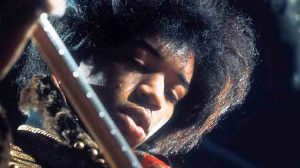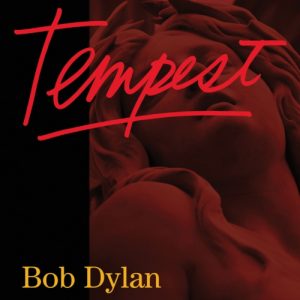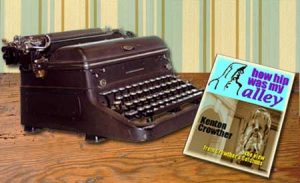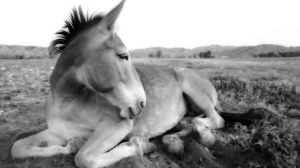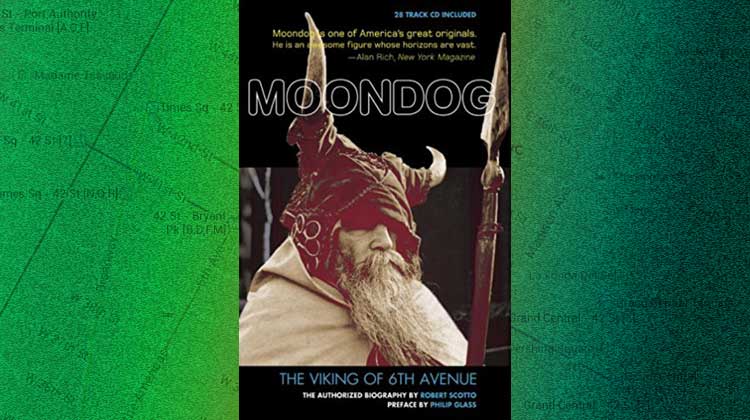
Moondog: The Viking of 6th Avenue by Robert Scotto / Process Media / 2007 / 280 pages / ISBN # 978-0-9760822-8-6
Born in Marysville, Kansas in 1916, the son of an Episcopal minister, Louis Hardin Jr. lived a relatively simple life in America’s heartland until the age of 16 when he was permanently blinded when he mistakenly toyed with a blasting cap. A life-altering event for anyone, but from out of this tragedy Louis would find the resolve to become a classical composer, “as though a new person emerged out of the experience and a second life struck out on its own, carrying only vestiges of what went before.” And in so doing he evolved into a voracious student of music, literature, history and philosophy, developing a somewhat exotic worldview that embraced Norse mythology and Viking culture as the pinnacles of European civilization.
Not exactly an “Outsider” musician, Louis (having renamed himself “Moondog”) would prove to be an autodidactic at heart, first learning Braille, and then music in Braille before adapting himself to transcription and the ability to write down what he was hearing in his head. Much in the vein of his contemporary Harry Parch, in order to hear his music played Moondog invented several musical instruments, including a small triangular-shaped harp known as the “Oo”, and perhaps his most well-known, the “Trimba”, a triangular percussion instrument.
From the late 1940s until 1974, Moondog lived (often homeless) as a street musician/ poet and performer in New York City, partially supporting himself by selling copies of his poetry and his musical philosophy. He quickly became known for the distinctive Viking garb that he wore, which included a horned helmet. These carefully hand-tooled togs were not part of an eccentric act, but living emblems of his philosophic convictions. His adopted street corner for performance was close to the famed 52nd Street nightclubs, and he became well known to many jazz musicians of the time. An impressive list of admirers indeed – among them Duke Ellington, Benny Goodman, Charlie Parker, Leonard Feather, Pete Seeger, Phillip Glass, Walter Winchell, Cassius Clay and Marlon Brando.
As the author notes: “Everybody had his own Moondog.”
This I can vouch for, as my one meeting with Moondog evoked in me a glimmer of a new manner of ‘seeing’ the world, and more importantly, hearing the world as music.
Working in Braille on a punchboard and composing under his leather cloak in all manner of weather, Moondog wrote prolifically in a wide range of styles including avant-garde jazz, madrigals, canons for chamber orchestra, and symphonies for full orchestra. Included with this book is a well-produced CD collection that is an added joy offering readers a sampling of his recordings, among them, “All Is Loneliness” and “Be a Hobo” – accompanied by minimalist composer Phillip Glass.
Anecdotally humorous throughout – one of my favorite bits was Moondog’s kissing the hand of Arturo Toscanini upon meeting the maestro, who then pulled it away, however, observing wryly that he was “not a beautiful woman.”
A succinct wordsmith, like “a feather on a drum” he spoke prophetically. “Before we humans quit the Stage of Life we should consider just how nice it’s been and will be till this place is covered by a mile or more of ice.”
And when once asked: What do you draw inspiration from for your work?
Moondog replied: “Silence mostly.”
Moondog…The Viking of 6th Avenue presents an evocative tribute, and essential reference for understanding and appreciating one of the 20th Century’s most unique and misunderstood composers.
